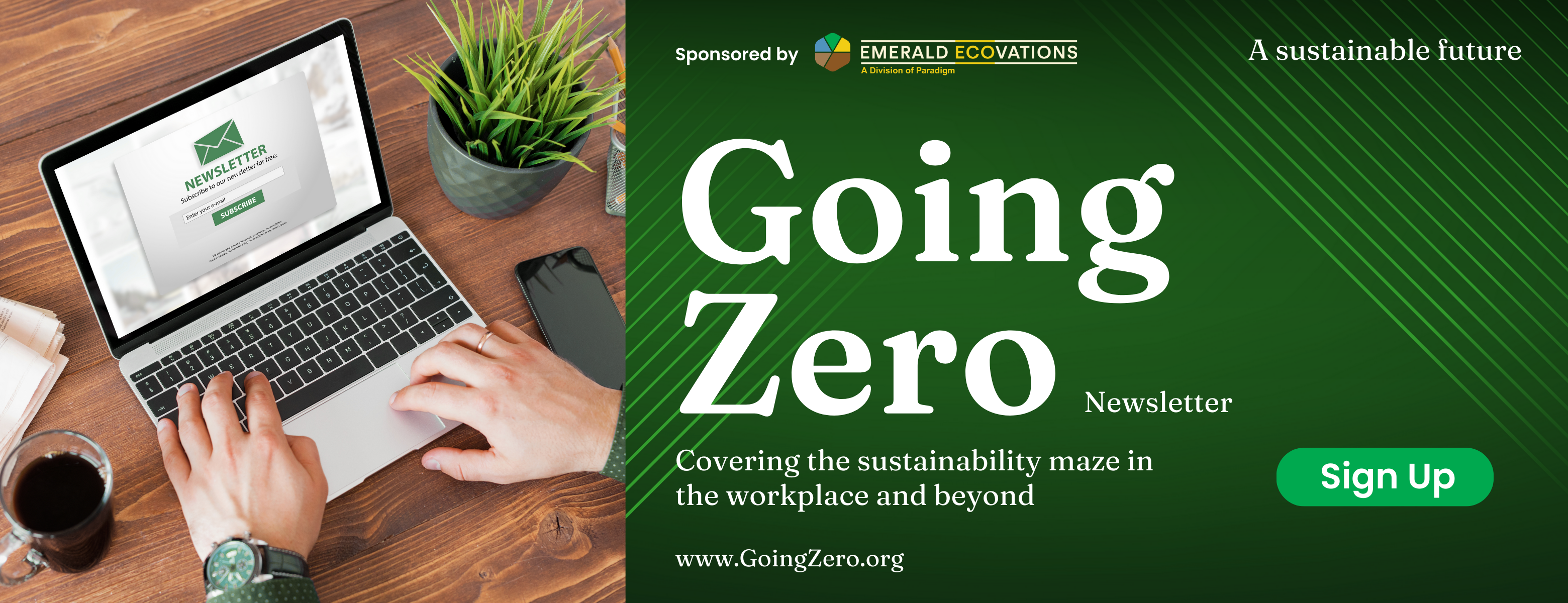
The concept of a “sustainability economy” is a transformative shift influencing global markets and corporate strategies across the globe.
As environmental concerns become more pressing, the sustainability economy presents an innovative framework for achieving economic growth that balances ecological, economic, and social needs. This framework is especially crucial in the face of climate change and dwindling natural resources, offering a pathway that supports environmental stewardship while promoting economic development and job creation.
For business executives, understanding and integrating into the sustainability economy is a strategic imperative. The move towards sustainability can open up new markets, improve efficiencies, and create competitive advantages.
In the United States, initiatives such as the Green New Deal and other federal sustainability mandates are shaping business landscapes and driving companies to adopt more sustainable practices. Internationally, agreements like the Paris Accord have set ambitious carbon reduction targets, urging businesses worldwide to rethink their operations and strategies.
We will explore the vital aspects of the sustainability economy, highlight growth sectors, and detail the burgeoning job opportunities within this space, providing a comprehensive overview for leaders ready to take their businesses into a more sustainable future.
The Importance of the sustainability economy
The sustainability economy represents a shift towards operations and practices that not only minimize environmental risks but also aim to preserve and enhance the Earth’s natural resources. This economic paradigm is grounded in sustainability and is integral to addressing the challenges posed by climate change, population growth, and resource depletion.
For business executives, recognizing and leveraging the sustainability economy’s benefits is crucial for future-proofing their operations and ensuring long-term profitability.
Environmental Benefits
According to the International Renewable Energy Agency (IRENA), renewable energy jobs reached 12 million globally in 2021, underscoring the sector’s role in a sustainable economic future.
The environmental benefits of the sustainability economy are profound and multifaceted. By reducing emissions, conserving water, and minimizing waste, businesses contribute significantly to the preservation of ecosystems. For instance, transitioning to renewable energy sources like solar and wind reduces dependence on fossil fuels and cuts greenhouse gas emissions.
Economic Benefits
Economically, the sustainability economy stimulates growth by opening new markets and creating job opportunities in emerging sectors. Investments in green technology and sustainable practices often lead to cost savings in the long run through improved efficiency and lower energy costs. Moreover, businesses that adopt green practices are increasingly recognized by consumers and investors alike, who are showing a marked preference for companies with robust environmental credentials.
A 2022 survey by Nielsen revealed that 73% of global consumers would change their consumption habits to reduce environmental impact, highlighting the growing economic importance of sustainability.
Social Benefits
Socially, the sustainability economy promotes a more equitable distribution of resources and opportunities, leading to improved quality of life in communities. It supports job creation across various sectors, from renewable energy to sustainable agriculture, often in regions most affected by economic downturns. These jobs not only provide employment but often offer better wages and working conditions, which are crucial for social stability and development.
Impact on Policy Making and Corporate Strategies
The trajectory of policy making in response to the sustainability economy is increasingly inclined towards sustainability. Governments worldwide are implementing regulations that incentivize green practices, such as subsidies for renewable energy projects and penalties for high emissions. These policies are reshaping corporate strategies, compelling companies to integrate sustainability into their core operations to comply with regulatory standards and capitalize on governmental incentives.
This integration not only aligns with global efforts to mitigate environmental threats but also sets a foundation for resilient and adaptable business models. By embedding sustainability into their strategies, companies can not only enhance their marketability but also build operational resilience, preparing them to meet future challenges and consumer demands in an evolving marketplace.
The sustainability economy represents a shift towards operations and practices that not only minimize environmental risks but also aim to preserve and enhance the Earth’s natural resources. This economic paradigm is integral to addressing the challenges posed by climate change, population growth, and resource depletion. For business executives, recognizing and leveraging the sustainability economy’s benefits is crucial for future-proofing their operations and ensuring long-term profitability.
Growth in the Sustainability Sector
Driven by technological advancements, increased investment, and a global push towards sustainability, the sustainability sector has been experiencing significant growth. This growth is not just about more environmentally friendly products entering the market—it represents a fundamental shift in how industries operate and innovate. Here, we’ll explore key areas where the sustainability sector is expanding, showcasing successful case studies and highlighting future growth opportunities.
Renewable Energy
Renewable energy is at the forefront of the sustainability sector’s expansion. The push towards solar, wind, and other renewable sources has been bolstered by both technological improvements and policy support.
In the United States, the solar industry has seen a dramatic increase in installations, with a projected growth of 17% in 2023 alone, according to the Solar Energy Industries Association (SEIA).
Companies like NextEra Energy, a leader in wind and solar energy, have capitalized on this trend, experiencing substantial growth in both revenue and job creation. Their success demonstrates how traditional energy companies can transition into the sustainability economy, reaping financial benefits while driving environmental innovation.
Sustainable Transportation
Sustainable transportation is another area witnessing rapid growth. Electric vehicles (EVs), once a niche market, are becoming mainstream, driven by consumer demand and improved battery technology.
Tesla, Inc. has been a pioneer in this sector, but traditional automakers like Ford and General Motors are also transitioning, planning to significantly increase their offerings of EVs in the next five years. This shift is supported by governmental policies, such as tax incentives for EV buyers and funding for charging infrastructure, which further accelerate adoption and industry growth.
Green Building
The U.S. Green Building Council reports that the green building sector is set to contribute over $303.5 billion to the U.S. economy from 2015-2018.
Green building practices are being adopted more widely as they prove to not only reduce environmental impact but also decrease operational costs over time. These practices include using sustainable materials, improving energy efficiency, and incorporating eco-friendly design from the outset.
Companies like Turner Construction have embraced these practices, leading to lucrative contracts and a strong reputation in sustainable building.
Case Studies: Leading the Way in Green Innovation
- NextEra Energy: By investing heavily in renewable energy projects, NextEra has become the world’s largest generator of renewable energy from the wind and sun, demonstrating the profitability and scalability of green energy.
- Tesla, Inc.: Tesla’s commitment to sustainable transportation has not only revolutionized the auto industry but also positioned it as a market leader in energy innovation.
- Turner Construction: Their focus on sustainable construction methods has led to increased demand from corporate clients looking to enhance their environmental stewardship and operational efficiency.
Future Projections
Looking ahead, the sustainability sector is expected to continue its rapid expansion. With advancements in green technology and increasing global commitment to the Paris Agreement goals, industries across the board are set to transform. The International Energy Agency (IEA) predicts that by 2030, renewable energy will constitute 30% of the world’s energy production, underscoring the sector’s growth potential and its crucial role in the global economy.
Job Opportunities in the Sustainability Economy
The surge in the sustainability sector not only propels technological and industrial growth but also generates a diverse array of job opportunities. These roles span various industries and require a mix of traditional skills and new competencies unique to green technologies and practices. Understanding these opportunities can help business leaders prepare their workforce for the evolving demands of the sustainability economy.
Emerging Job Roles
The transition to a sustainability economy is creating jobs at all levels—from research and development in renewable energies to manufacturing components for electric vehicles, to constructing sustainable buildings. Key roles include:
- Renewable Energy Technician: These professionals are involved in installing and maintaining renewable energy systems, such as solar panels and wind turbines.
- Sustainability Consultant: These experts help businesses reduce their carbon footprint, comply with environmental regulations, and implement sustainable practices across operations.
- Environmental Engineer: These engineers work on solutions to environmental problems, including waste treatment, water and air pollution control, and recycling systems.
The demand for these positions is growing as industries pivot towards sustainable practices.
For example, the U.S. Bureau of Labor Statistics predicts that the employment of wind turbine technicians will grow by 61% from 2019 to 2029, much faster than the average for all occupations.
Skills and Qualifications in Demand
As new green jobs emerge, so do the specific skills required to fill them. These include:
- Technical skills: Proficiency in green technologies, such as knowledge of photovoltaic systems, wind turbine components, and energy-efficient building practices.
- Analytical skills: Ability to analyze data to improve resource efficiency and make sustainable decisions.
- Project management skills: Overseeing projects that implement sustainable practices requires the ability to manage time, resources, and personnel effectively.
Educational institutions and companies are increasingly offering training programs and certifications in these areas to help current and future employees adapt to the sustainability economy’s needs.
Government and Private Sector Partnerships
Collaborative efforts between the government and the private sector are vital for fostering a skilled green workforce. These partnerships often involve funding for training programs, grants for green businesses, and incentives for companies that hire in high-demand sustainability sectors. Such initiatives not only bolster job creation but also ensure that the economic benefits of the sustainability economy are widely distributed.
Preparing the Workforce
Businesses can prepare their workforce for green transitions by investing in training and development. This preparation involves:
- Upskilling current employees: Providing training sessions on new green technologies and sustainable practices.
- Partnering with educational institutions: Collaborating with colleges and universities to tailor curricula that meet the industry’s evolving needs, ensuring a steady pipeline of qualified graduates.
- Fostering a culture of continuous learning: Encouraging employees to pursue ongoing education and stay abreast of industry trends and innovations.
Business leaders play a crucial role in this process. By actively investing in their employees’ growth, they not only enhance their company’s sustainability but also boost employee morale and attract top talent interested in contributing to meaningful work.
Role of Education and Vocational Training
The role of education and vocational training in preparing individuals for green jobs cannot be overstated. Educational programs tailored to the sustainability economy focus on sustainability principles, environmental law, green technology applications, and practical skills for green jobs. Vocational training programs are particularly important for technical positions, such as solar panel installers and wind turbine technicians, where hands-on experience is crucial.
Strategies for Business Leaders
As the sustainability economy continues to grow, business leaders have the opportunity and responsibility to steer their companies towards sustainability. This shift not only aligns with global environmental goals but also offers substantial business benefits, including cost savings, compliance with regulations, and enhanced brand reputation. Here, we outline practical strategies that executives can adopt to successfully navigate this transition.
Integrating Green Practices into Business Operations
- Conduct a Sustainability Audit: Start by assessing current operations to identify areas where improvements can be made. This might include energy consumption, waste management, and supply chain practices.
- Set Measurable Goals: Based on the audit, set specific, measurable, achievable, relevant, and time-bound (SMART) goals for incorporating sustainable practices. For example, reducing energy consumption by 20% within three years.
- Invest in Renewable Energy: Transitioning to renewable energy sources like solar or wind not only reduces carbon emissions but can also lead to significant energy cost savings over time.
Leveraging Green Innovations for Competitive Advantage
- Adopt Green Technologies: Implement the latest sustainable technologies, such as energy-efficient appliances, electric vehicles for company use, or advanced recycling systems.
- Innovate New Green Products: Develop new products or modify existing products to be more environmentally friendly, which can attract customers and open new markets.
- Enhance Supply Chain Sustainability: Work with suppliers to ensure that they also adopt sustainable practices, reducing the overall environmental impact of your products.
Cultivating Leadership and Corporate Culture in Sustainability
- Lead by Example: Business leaders should personally embrace sustainable practices to set a precedent for the entire organization.
- Employee Engagement: Encourage employee involvement in sustainability initiatives, such as company-wide recycling programs or a committee on green practices.
- Community Outreach: Engage with the local community on sustainability projects, which can enhance corporate reputation and encourage communal support.
Case Studies: Corporate Leaders in Sustainability
- Patagonia: Known for its environmental activism, Patagonia not only uses sustainable materials but also encourages customers to buy used items and repair gear through their Worn Wear program.
- IKEA: IKEA has invested heavily in becoming climate positive by 2030, including reducing more greenhouse gas emissions than the IKEA value chain emits, while growing the IKEA business.
These strategies illustrate how businesses can not only comply with environmental regulations but also lead in the transition to a sustainability economy. By embracing these practices, companies can improve operational efficiencies, foster innovation, and build a positive brand image that resonates with consumers and investors alike.
Conclusion
The transition to a sustainability economy offers a promising pathway for business leaders to drive not only environmental sustainability but also economic growth and innovation. By understanding the growth trends in the sustainability sector, recognizing the emerging job opportunities, and implementing strategic changes, executives can position their companies at the forefront of this global shift. As we look towards a sustainable future, the role of corporate leaders becomes increasingly crucial. Embracing this challenge not only contributes to the global effort against climate change but also unlocks new opportunities for growth and competitiveness in an ever-evolving business landscape.
This article has outlined the scope and impact of the sustainability economy, offering actionable insights and strategies for business leaders ready to lead their organizations towards a sustainable and profitable future.
Related Articles
Our Mission and Innovations
Launched in 1997, our mission has been to end deforestation and plastic pollution by providing sustainable solutions for everyday essentials.
How does compost contribute to the sustainability of food production?
As the world moves towards more sustainable practices, composting is becoming a cornerstone in transforming food production. It leverages organic waste management to enrich soil, reduce pollution, and promote the recycling of nutrients. According to the Environmental...
Can you compost paper plates?
As of 2020, the United States generated approximately 292.4 million tons of waste, with only about 32.1% being recycled or composted. For leaders in the food service sector, it's crucial to understand your role in this dynamic and explore options for sustainable...
Are Paper Plates Compostable? A Simple Guide
Are paper plates compostable? It depends on the type of paper plates you buy. Emerald Ecovations Tree-Free plates are eco-friendly and commercially compostable.
Discover the Advantages of Kraft Paper Bags for Eco-Friendly Packaging
Explore the advantages of kraft paper bags for sustainable packaging, highlighting their eco-friendliness, versatility, and positive impact on the environment.
The Truth About Cheap Laundry Detergent
“Discover the hidden truths about cheap laundry detergent. Uncover its effectiveness, potential drawbacks, and how it impacts your laundry routine and budget.
“






